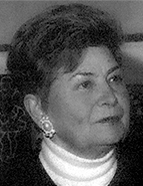

The daughter of José Nunes Moita and Justina da Nóbrega, she was the sixth of twelve children born to this prolific couple of colonisers, who participated, as the second generation, in the founding of the city of Sá da Bandeira, on the Huíla plateau. José Moita, a native of Sertã, was an enterprising man who, shortly after arriving, acquired a vast tract of land which he called Quinta da Liberdade, which would become his family home. He named his daughter Irisalva because she was born at five o’clock in the morning, which he interpreted as Íris-Alva, Messenger of Dawn, Morning Star. He was a republican, secular, atheist and anticlerical, and later became anti-Salazarist. He combined these strong convictions with an unusual general knowledge, which he acquired as an autodidact. The house was a veritable school. Irisalva would later say that the whole family had been “very influenced by her father (...) a very interested person, very studious, especially in politics and ideas”, who educated his children “in a different way from other children”, giving them “a lot of autonomy, more freedom than was usual at a time when everything was very closed” (Interview with Faces de Eva, 2006, no. 16, p. 133). Irisalva Moita’s childhood and adolescence blossomed and developed in this environment, where there was also high standards, integrity and rigour, values that she assimilated and which were a constant throughout her life, both in the many activities she was involved in and in the scientific work she produced. In all areas of her life, we encounter a woman of strong character and great integrity, who never gave in to pressure or let herself be defeated by failure. She also inherited a left-wing political stance, although she was not actively involved in any party. Her lifelong religious agnosticism did not prevent her from having a good relationship with Catholic institutions. She even left the home of some uncles where she had initially settled to live for a while in a girls’ home run by the Society of the Daughters of the Heart of Mary, in Quelhas, closer to the School. He later confessed that “it was a new experience that he had enjoyed very much, one of the phases of his life that he remembered most fondly” (Interview, p. 136).
This work is financed by national funds through FCT - Foundation for Science and Technology, I.P, in the scope of the projects UIDB/04311/2020 and UIDP/04311/2020.
